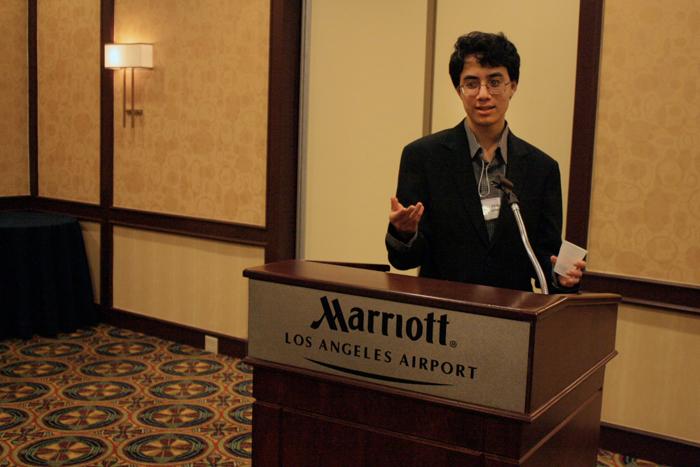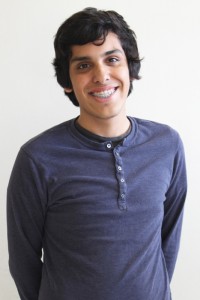JSA members congregated at the LAX Marriott, on Oct. 12 and 13, to practice democracy and strengthen debating skills at the 2011 Junior State of America Fall State Convention. “JSAers” remained at the hotel and listened to both experienced and inexperienced speakers debate over topics that ranged from prostitution to the debt ceiling and just about everything in between. Participants also had the pleasure of hearing Lee Steinberg, a professional sports contractor, give a speech about the qualities that statesmen—and people in general—need in order to lead, impact, and be wholesome.
The Downey JSA chapter, comprised of 10 delegates and Teacher Advisor Mr. Armendariz, arrived at 9:02 and quickly headed over to the general session area. There, they were given a brief overview of the upcoming debates and instructions on the proper discourse the event requires. The convention is formatted in a style very similar to a school system: essentially, there are four blocks per day and in those blocks there are debates that you must be present in. Like school, there are classes and you must be in them.
Downey JSA members participated in as many debates as they could. In total, there were eight blocks with five debates within each. Some of the most controversial and heavily-trafficked debates include: sex monitoring, prostitution, gay marriage, mainstream awareness of hipsters, lower drinking age, and the plausibility of the Obama health care plan.
The JSA convention does not cater to a single group. Rather, JSA seeks to make the event fun and interesting for all. If a person is more socially-politically aware, gay marriage and the lowered drinking age might appeal to them. For the individual invested in economics, the debt ceiling and discontinuation of the NASA program, or perhaps even Obamacare, should prove a good enough basis.
For the Downey chapter, the members were deeply invested and content with the debates at hand. Sophomore Gia Marciano, a new member to the JSA realm, feels that debates can not only be fun, but highly liberating.
“Debating allows us to say what we want in a respectful manner,” Marciano said. “JSA is a good medium for students to be heard and to say what they want in an arena where they can be taken seriously.”
Likewise, sophomore Nikki Rangel gained a deeper respect for the art of debate.
“The best thing about debate is that you can learn so much about a topic, and your opinion can change,” Rangel said. “When people use facts and humor, it just helps their argument.”
The members, too, learned about the various ways in which to improve their oral skills through the new program labeled Competitive Debate. The Vice President of the Downey chapter was chosen to participate in the new program, wherein each school is mandated to offer one student to debate. Junior Phillip Shimada, a member since 2010, also spoke and offered his own opinion during the debt ceiling debate. In total, five of the ten representatives stepped up and voiced their opinions.
Joyce Kang, junior, felt more connected to the club after the event.
“We become a family after and we act more together. You get to know someone and get insight like you normally couldn’t at school. The dance is also really fun, and a really good way to bond.”
The event surely left the students tired and drained; however, while they have lost physical vigor, their intellectual capacity and interests have increased. JSA students truly embody the desire and drive to outgrow the politically stratifying conventions of a divided nation, and try to view issues from both sides of the spectrum. Junior State of America offers students unique outlooks on opinions, which are fundamental to a diverse and truly free democracy.




